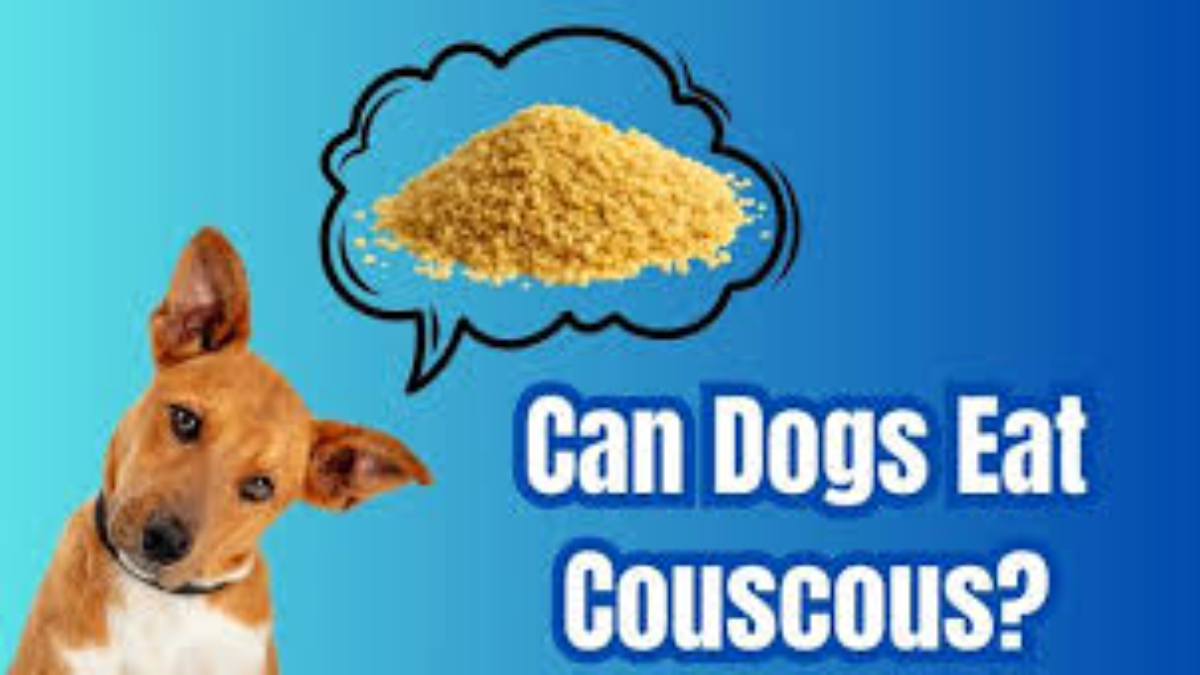Couscous, a staple in many cuisines, is a versatile grain dish that has gained popularity worldwide. As dog owners increasingly seek to provide their pets with diverse and nutritious diets, questions arise about whether couscous is suitable for canine consumption. In this article, we’ll delve into the nutritional composition of couscous, assess its potential benefits and risks for dogs, and provide guidelines for responsible feeding practices. Learn more at Pets Care Insiders.
Couscous, a traditional North African dish, is a versatile grain that can be used as a base for stews, salads, and side dishes. Its mild flavor and light, fluffy texture make it a versatile addition to your dog’s diet. While primarily a source of carbohydrates, couscous also contains protein, fiber, and a variety of vitamins and minerals.
Nutritional Composition of Couscous
Couscous provides a range of essential nutrients, including:
- Carbohydrates: The primary energy source for dogs, couscous, is primarily composed of carbohydrates that support their daily activities and metabolic processes.
- Protein: Couscous has a moderate protein content, albeit not as much as other grains. Protein is essential for dogs’ overall health and muscle maintenance.
- Fiber: Couscous contains dietary fiber, which aids digestion and promotes gastrointestinal health by supporting regular bowel movements and preventing constipation.
- Vitamins and Minerals: Couscous provides various vitamins and minerals, including B vitamins, iron, magnesium, and zinc, which are vital to canine nutrition and overall well-being.
Potential Benefits of Couscous for Dogs:
- Carbohydrate Energy Source: The carbohydrates in couscous can provide dogs with a readily available energy source, making it particularly beneficial for active or working dogs with high energy requirements.
- Protein and Nutrient Content: Couscous adds to a dog’s total protein intake and offers vital vitamins and minerals that support several physiological processes, even though it is not their primary source of protein.
- Digestive Health: Couscous fiber helps dogs’ digestive systems by encouraging regular bowel movements and a balanced gut flora.
- Palatability and Variety: Some dogs may enjoy the taste and texture of couscous, which provides a welcome addition to their diet and variety in their meals.
Risks and Considerations
- Allergies and Sensitivities: Wheat and gluten, two common ingredients in couscous, may cause allergies or sensitivities in particular dogs. It is crucial to keep an eye out for any indications of allergies or unfavorable reactions in your dog following couscous consumption.
- Digestive Upset: For some dogs, introducing couscous too soon or giving them a lot of it can upset their digestive systems and cause vomiting, diarrhea, or abdominal pain.
- Gluten Content: For dogs with dietary sensitivity to gluten or specific medical conditions like gluten intolerance or celiac disease, couscous may pose a medical risk.
- Portion Control and Moderation: Dogs can have couscous in a balanced diet, but it should only be given occasionally as a supplement rather than as their primary food source. Overindulgence could be a factor in nutritional imbalances or weight gain.
Guidelines for Feeding Couscous to Dogs
- Gradual Introduction: Give your dog a few servings of cooked couscous, and observe how he reacts to it for any indication of allergies or an upset stomach. If the serving size is tolerated, progressively increase it.
- Proper Preparation: Cook couscous thoroughly and avoid adding seasonings, spices, or ingredients that may harm dogs. For canine consumption, cooked, plain couscous is the safest option.
- Portion Control: Limit the amount of couscous you feed your dog and incorporate it into an array of nutrients in a well-balanced diet: protein sources, fruits, vegetables, and other whole grains.
- Monitor for Adverse Reactions: After consuming couscous, keep a close eye on your dog for any signs of allergies, sensitivities, or digestive issues. If any adverse reactions occur, discontinue feeding couscous and consult your veterinarian.
- Consider Individual Factors: When determining whether couscous suits your dog’s diet, consider your dog’s age, size, breed, activity level, and underlying health conditions.
Conclusion
Couscous can be included in a balanced diet for dogs, providing a source of carbohydrates, protein, fiber, vitamins, and minerals. However, potential risks such as allergies, digestive upset, and gluten content must be considered when feeding couscous to dogs. Following the recommended guidelines and monitoring your dog’s response, you can safely incorporate couscous into your dog’s diet as an occasional and enjoyable addition to their meals.
As always, prioritize your dog’s health and well-being by consulting your veterinarian for personalized dietary advice and recommendations. With careful consideration and responsible feeding practices, you can provide your dog with a nutritious and diverse diet that promotes their general well-being and vitality.
